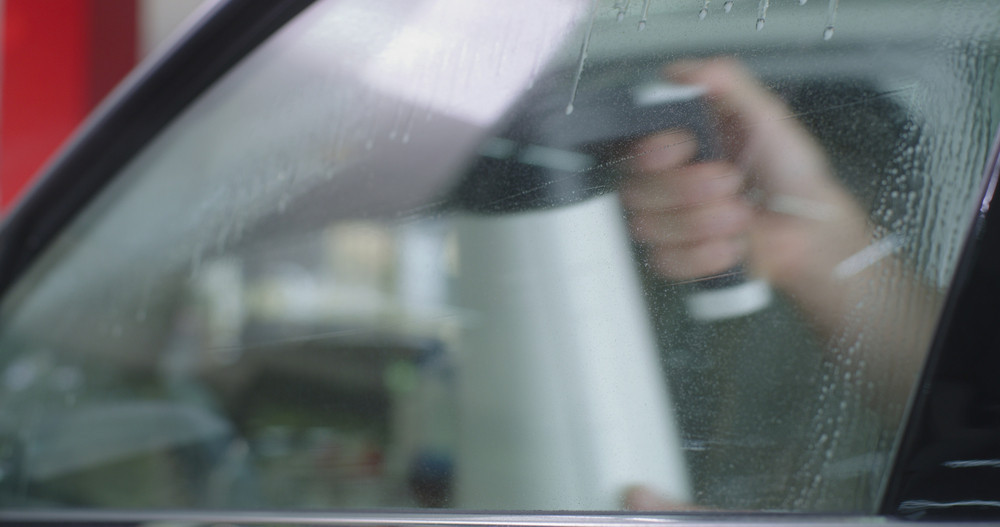Smart Strategies to Protect Your Car Windows from Cracks, Heat Damage, and Break-Ins
Chehalis, United States - July 25, 2025 / 877 Glas Guy /
Park smartly to protect glass from heat stress and flying debris.
Keep a safe following distance to avoid chips from road hazards.
Use sunshades, tint, or window film to block harmful UV and heat.
Never leave valuables visible in your car to deter break-ins.
Maintain window seals and replace worn wiper blades regularly.
Install security film to make glass more resistant to break-ins.
Consider upgrades like laminated or UV-treated windows in harsh climates.
Car windows may seem like just another part of your vehicle, but they’re critical to your safety, comfort, and security. They shield you from the elements, provide structural support, and help maintain climate control inside your car. Yet many drivers don’t take active steps to protect their windows—until it’s too late.
Whether it's heat damage on a summer day, chips from highway debris, or a shattered window from theft, preventative action is your best defense. In this comprehensive guide, we’ll walk through specific, practical ways to prevent car window damage from three of the most common threats: heat, debris, and theft.
The Impact of Heat on Car Windows
Why Heat Is a Hidden Threat
High temperatures can silently wear down your car windows. On scorching summer days, your vehicle's interior can heat up to over 140°F (60°C), especially if parked in direct sunlight. This intense heat expands the glass and its surrounding materials. When this expansion is followed by rapid cooling—like blasting the A/C—small imperfections in the glass can develop into large cracks or full shatters.
Heat can also dry out rubber seals, leading to water leaks and misalignment over time. If you’ve already got a chip or tiny crack in your window, heat will accelerate the damage.
Tips to Protect Car Windows from Heat
Use a reflective sunshade when parked: It dramatically reduces the temperature inside your vehicle and shields your windows from UV radiation.
Install window tint or UV-protective film (where legal): This helps block heat buildup and reduces thermal stress on the glass.
Park in shaded areas or covered garages whenever possible. Even partial shade helps.
Avoid sudden temperature shifts: Gradually cool your car instead of cranking the A/C right away.
Crack your windows slightly (if safe and secure) to allow heat to escape and reduce pressure buildup.
Apply silicone conditioner to seals to keep rubber soft and flexible, especially in hot climates.
Proactive measures not only prevent glass breakage but also prolong the life of your car’s interior by reducing sun exposure.
How to Prevent Damage from Road Debris
Debris: A Constant Roadside Risk
Rocks, gravel, trash, and other small objects on the road can easily chip or crack your windows—especially your windshield. These risks multiply on highways, near construction sites, and during or after storms. One well-timed pebble flying off a truck tire is all it takes to damage your window.
Driving Habits That Minimize Risk
Keep a generous distance behind large vehicles, especially trucks carrying dirt or construction material.
Avoid unpaved or poorly maintained roads that kick up more debris.
Slow down near construction zones or areas with visible roadside hazards.
Change lanes safely if you notice debris ahead or behind another vehicle throwing up particles.
Stay alert during windy days—gusts can carry small branches or other dangerous objects onto the road.
Tools & Products That Help
Protective windshield film: Adds a strong, transparent layer that can prevent chips and minor cracks from spreading.
Mud flaps: Especially helpful for SUVs and trucks, these prevent debris from being kicked up by your own tires.
Ceramic coating or hydrophobic treatments: These make it easier to clean debris off windows and reduce grime buildup.
These options are especially worth considering if you frequently drive on highways or live in areas with seasonal road work or high winds.
Protecting Windows From Theft & Break-Ins
Why Car Windows Are a Target
Car windows are the most common entry point for thieves. In a typical smash-and-grab, a thief shatters a side window, grabs anything valuable, and leaves within seconds. Even if nothing is stolen, you’re left with hundreds of dollars in repair costs and possible exposure to the elements.
Proven Methods to Prevent Car Window Theft
Don’t leave valuables in view. Bags, purses, electronics—even empty ones—can tempt a thief.
Tinted windows or privacy shades: These reduce visibility into your car’s interior.
Install a security window film: This makes it significantly harder to shatter the glass.
Use a car alarm or motion detector: Many thieves avoid vehicles with visible or audible security systems.
Etch your VIN into your window glass: It can deter theft and make it harder for stolen parts to be sold.
Park in well-lit, high-traffic areas: Darkness and isolation make your vehicle a more attractive target.
Keep doors locked and windows fully closed even when parked briefly.
Security upgrades like motion-sensitive lighting or a dashcam with parking surveillance mode can further enhance your car's protection.
Seasonal & Regional Risks to Be Aware Of
Depending on where you live and drive, your car windows face different environmental threats.
Summer & Wildfire-Prone Regions
High UV and temperature levels strain seals and increase the chance of cracks.
Ash and embers from wildfires can stick to glass and etch it over time.
Cold or Snowy Climates
Scraping frost and ice can scratch windows.
Sudden cold shocks can cause stress cracks in already compromised glass.
Road salt can corrode seals and etch into unprotected surfaces.
Coastal & Windy Areas
Salt air can degrade rubber window seals over time.
High winds can hurl small debris at your car even when parked.
Tips for Seasonal Window Care
Apply glass protectants based on your climate: UV blockers for heat, anti-ice coatings for cold.
Rinse windows often in coastal areas to remove salt buildup.
Use padded window covers during ice storms or wind events.
Inspect window seals quarterly if exposed to salt, sun, or harsh weather regularly.
These habits will help extend the lifespan of your windows and reduce unexpected repairs.
Regular Maintenance Habits to Protect Glass
Good habits go a long way in preventing damage.
Keep Your Windows Clean
Use proper glass cleaner (ammonia-free) to avoid damaging tint or coatings.
Use microfiber cloths only—avoid paper towels or anything abrasive.
Clean wiper blades regularly to remove grit that could scratch the glass.
Inspect Windows & Seals
Check for small chips or cracks monthly. Address them before they spread.
Inspect seals for signs of wear, drying, or cracking. Damaged seals allow leaks and cause rattling.
Look for fogging or condensation between window panes—especially on newer laminated windows. This could indicate seal failure.
Maintain Wiper Blades
Worn blades can scratch glass with repeated use.
Replace every 6–12 months, or sooner if they squeak or leave streaks.
Prevention is always more cost-effective than repair or replacement—especially if you’ve had to look for a car window replacement with good reviews before.
Consider Upgrades for Extra Protection
If you live in an extreme climate, travel frequently, or just want peace of mind, consider investing in enhanced glass protection.
Available Upgrades
Security window film: Makes windows much harder to shatter. Often used by law enforcement vehicles.
Laminated side windows: Standard in windshields but now available for side glass, providing extra durability and UV resistance.
Smart glass or auto-dimming windows: Helpful in high-sun areas but expensive.
UV-protective window tint: Reduces heat, prevents fading of interior, and lowers stress on glass.
These are especially useful for new vehicles or when replacing damaged windows. Many auto glass shops now offer these as optional upgrades during service.
Final Thoughts
Your car’s windows do more than just offer a view of the road—they protect you, your passengers, and your belongings. Unfortunately, too many people wait until they’re dealing with a cracked, chipped, or shattered window before paying attention to this critical part of the vehicle.
Whether it’s shielding your car from the sun’s blistering heat, avoiding road debris, or guarding against theft, there are plenty of smart and affordable ways to keep your windows in top shape.
Recap of What You Can Do:
Park smart to avoid heat and debris.
Keep up with routine maintenance and seal inspections.
Use products like protective film and UV tinting.
Install security features to prevent theft.
Drive cautiously and avoid known hazard zones.
Consider long-term upgrades for added protection.
By adopting these strategies, you can avoid unnecessary repairs, maintain your vehicle’s value, and—most importantly—stay safe on the road. Prevention might take a little effort up front, but it pays off every time your windows hold strong in challenging conditions.

Contact Information:
877 Glas Guy
183 N Hamilton Rd Unit B
Chehalis, WA 98532
United States
Glass Guy
https://www.877glasguy.com/


